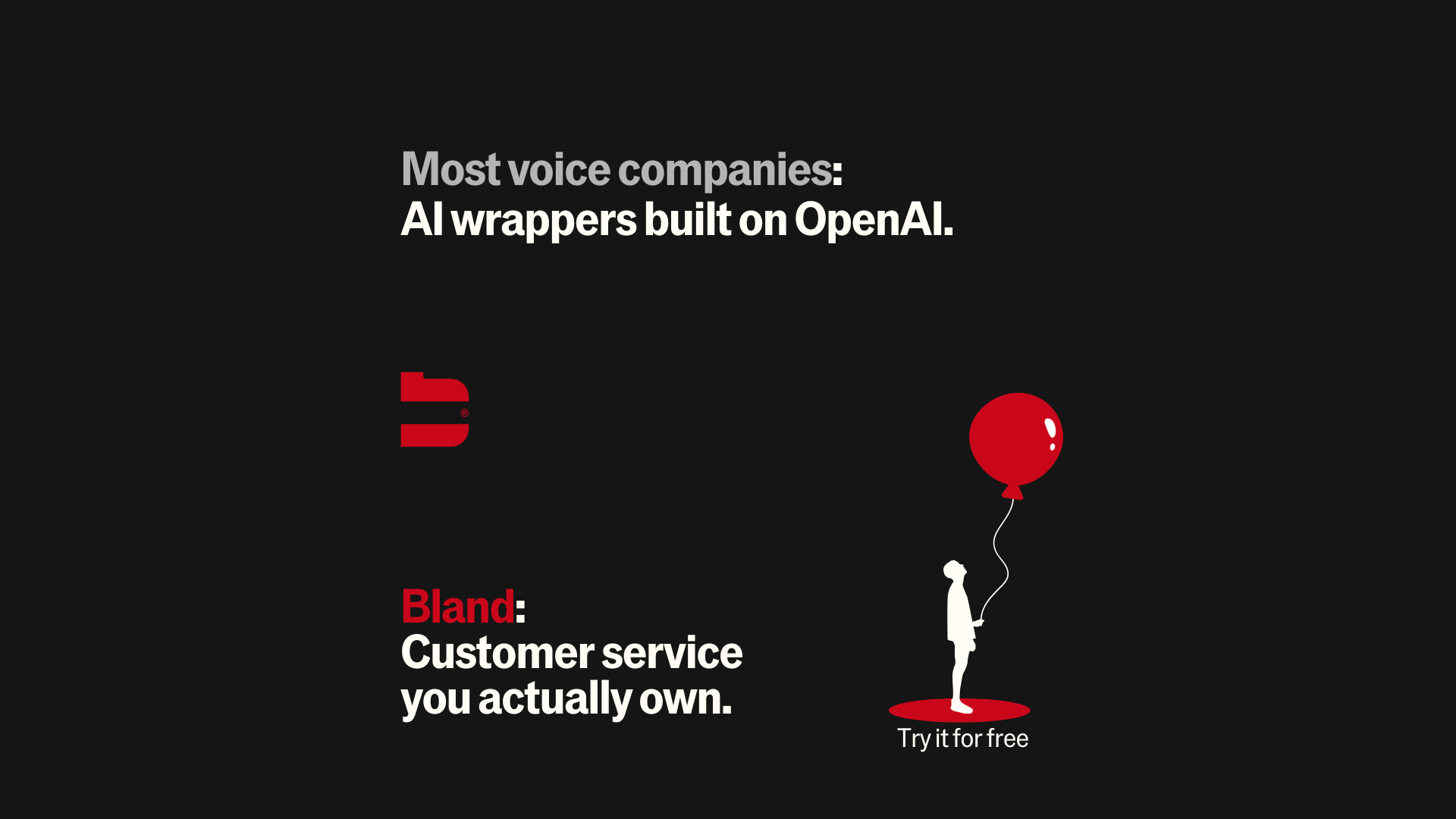When your business reaches the stage of needing an AI voice agent to streamline customer service, you’re faced with two choices: an API wrapper or a self-hosted AI voice. If you’re not sure which option best suits your enterprise, this is the article for you.
The rate of adoption for AI voice agents is continually increasing. In Canada alone, the second quarter of 2025 saw 20% of Canadian businesses using speech or voice recognition AI, up from 18.1% in the first quarter. This trend is far from isolated in Canada, with businesses across the globe turning to AI solutions to streamline customer service pathways.
Yet, not every AI voice solution is made equally. Models are either API wrappers or self-hosted, which can lead to radically different experiences and functionalities. In this article, we’ll explore the differences in these approaches, discuss where each excels, and suggest which may be right for your business.
What is an API Wrapper AI Voice Agent?
An API wrapper is a technology that connects a company’s own software to AI model providers. Major existing AI models, like those offered by Anthropic and OpenAI, allow businesses to build with their software by drawing directly from these available models with an API wrapper. This approach means an AI voice agent app can rapidly construct its infrastructure without needing to train a model from scratch or fine-tune it over time to better meet its functional needs.
While using an API wrapper does offer a range of benefits to the vendor, like how quickly they can develop a solution and lower upfront costs, these efficiencies don’t always translate to the final consumer.
If you’re an enterprise that’s looking to integrate an AI voice agent into your business, you should be aware of the following potential problems:
- Limited customization: As the model is a general-purpose LLM, it may lack the specific skills that a voice AI agent needs to deliver effective customer support. Without the ability to extensively customize the model, a business that uses a product facilitated by an API wrapper may face reduced functionality.
- Compliance risks: An API wrapper routes your private information through a third-party AI provider when delivering customer support. If your enterprise works in a highly regulated industry, this can create major data privacy and security risks.
- Rising costs: Vendors that use API wrapping to deliver AI voice agents are charged directly by the AI provider for every call they make. These costs are then directly passed on to you, creating a major cost drain for any enterprise client operating at scale.
A recent report from McKinsey has shown that 95% of AI software that builds on an API wrapper does not generate an ROI. The functional limitations and vendor lock-in can reduce the efficacy of an AI voice agent that’s run on an API wrapper, meaning that enterprise clients don’t always receive the quality they’re looking for.
What Is a Self-Hosted AI Voice Agent?
A self-hosted AI voice agent is a support technology that is custom-built for that exact purpose. Instead of using a third-party, more general AI, like that provided by OpenAI, a self-hosted system is constructed from the ground up in-house. Due to the more specific use case that a self-hosted model is created for, it is able to deliver a higher quality service and excel in tasks related to customer engagement.
For enterprises looking for an AI voice agent, a self-hosted option is typically more effective, as they offer:
- Full customization and conversation control: Enterprises that use a self-hosted AI voice agent are able to customize the voice, tone, and conversational flow the agent offers.
- Conversational consistency: Self-hosted models are purposefully built for this specific function and don’t service any external use cases. This singularity makes them extremely reliable, even when delivering customer support conversations at scale.
- Enterprise-grade security: All information that flows through a self-hosted AI model is processed within the vendor’s infrastructure. This approach minimizes the potential for third-party exposure, allowing businesses to meet strict data security and privacy compliance regulations.
Across the board, a self-hosted AI voice agent offers a more scalable, dynamic, customizable, and reliable solution.
Which Is Right for Your Enterprise?
When looking for a specific AI solution, a model that is specifically created to fulfill that purpose will always deliver better results than a highly accessible, generalist model. For enterprise clients that need to guarantee that every customer conversation goes as smoothly as possible, self-hosted AI agents are the way to go.
If you’re looking for an industry-leading, self-hosted AI voice provider, then you’re in the right place. Bland is a custom-built and fine-tuned AI voice system that was created with the express intention of delivering world-class conversational abilities to customer support teams. Bland’s voice agents sound like humans, can process complex queries, and can even handle numbers, unlike any other solution on the market.
Learn more by reaching out to the team today or schedule a demo and talk with one of our AI agents live.


